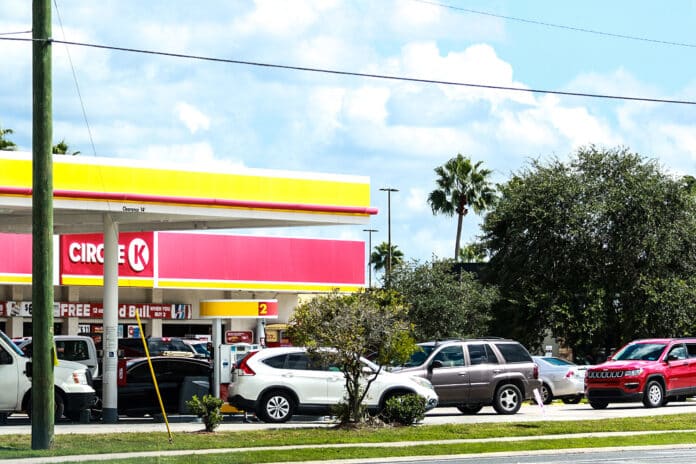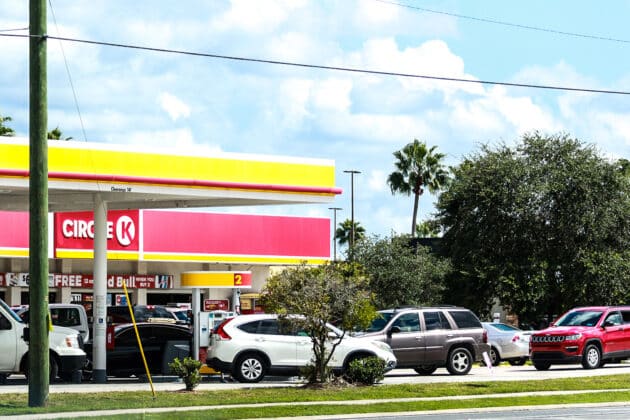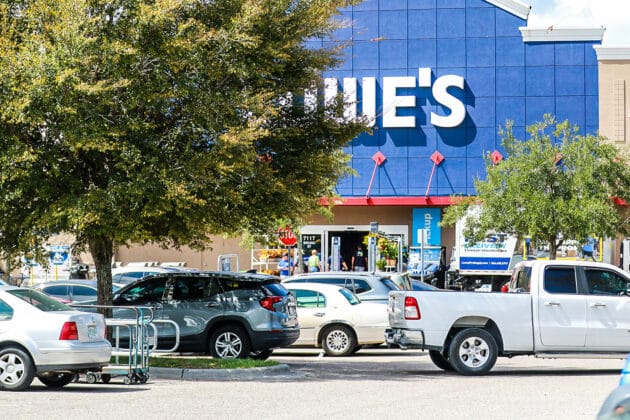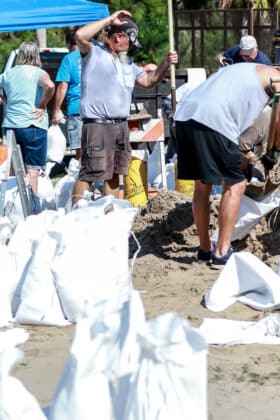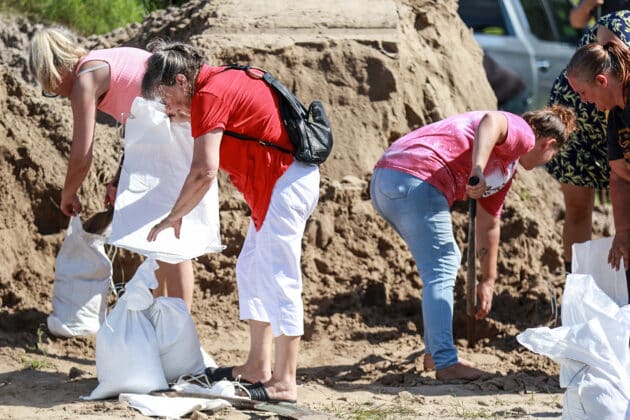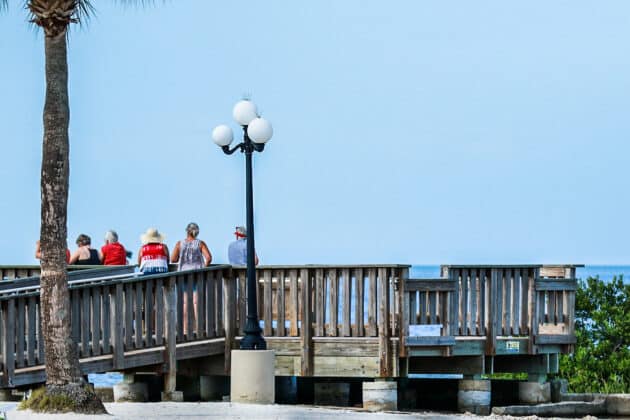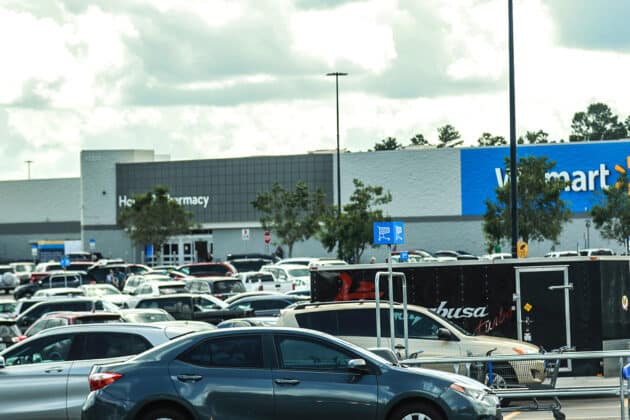It’s been five years since Hernando County was hit with a hurricane. It was Irma on Sept. 11, 2017 that gave our area a bit of a beating as a category 1 hurricane. On Monday Sept. 26, 2022, Florida began bracing for Hurricane Ian and Hernando County was well within the cone of concern. Governor Ron DeSantis declared a State of Emergency for all 67 counties and urged Floridians to prepare. Seven thousand National Guard were ready to respond where needed. Five thousand guardsmen are from Florida and another 2000 from Georgia, North Carolina and Tennessee. Search and Rescue teams were activated and other agencies prepared to assist.
Alerts and warnings are updated frequently. Sand bags were available at Linda Petersen Park on Shoal Line Blvd. in Spring Hill as well as Anderson Snow Park, Ridge Manor Community Center, and City of Brooksville DPW.
Mandatory evacuations were declared in Hernando County for areas west of US 19 (Zones A, B, and C), all residents living in low-lying areas and all manufactured homes countywide.
Shelters in Hernando County were opened on Tuesday Sept. 27, 2022 for residents under evacuation areas. Challenger K-8 for special needs, the Mining Association Enrichment Center (Pet Friendly and General Population), and Explorer K-8 (Pet Friendly and General Population) are serving as shelters.
Cars lined up at gas stations. Grocery stores were packed with customers getting supplies, and parking lots were full. Pine Island was quiet on Monday morning as people were swimming and taking in the sun.
Our area has had a significant amount of rain in the past several weeks which will make county-wide flooding highly likely. A high water table also causes the root systems of large trees to become unstable, so a lot of down trees are expected.
Post-Ian Considerations
Mosquito Bloom
UF entomologists warn that floodwater mosquitoes could be a significant concern approximately 2-weeks after Hurricane Ian or possibly sooner if the weather stays warm. Because mosquitoes lay their eggs in the ground and may survive for years, areas that become flooded are susceptible to a mosquito bloom since eggs that may have been dormant for years will begin to hatch when exposed to water. Be vigilant about dumping water from any containers like flowerpot bases, or old tires where mosquito larva will live.
Well Contamination
If you have a private well, your well can become contaminated if surrounded or submerged by floodwaters. UF experts say that the main concern is harmful bacteria like E. Coli that enter the well system through the floodwaters. They recommend testing your well water by a certified lab before using it and stress that boiling it will not necessarily make it safe to use.
“Please keep in mind, boiling water is only effective for bacterial contamination. If you have any other organic or in-organic contaminates, boiling water will not remove contaminates. It may only concentrate those contaminates,” stated Dr. Yilin Zhuang/UF/IFAS Water Resources Regional Specialized Agent.
Before a hurricane, UF experts recommend making sure that the well cap is secure and uncracked. Remove debris and vegetation from around the pump and turn off the circuit breaker to the pump if you lose power to prevent damage. If the pump gets wet, wait until it is completely dry before turning the power back on. If your well is contaminated, experts recommend using a technique called shock chlorination to clean the well, pump, water system and plumbing. Start by flushing sediment out of the system but running water for an hour or 3 times the volume of your well. Then pour a mixture of 1 cup of unscented, fresh household bleach and 10 cups of water into the well. Let it sit for 12 to 24 hours before flushing the system. Then wait a few days before taking a sample for testing to be sure that the system is disinfected and safe to use. Additionally, Zhuang states, “If you have any water treatment systems and devices, do not forget to replace these filters or membranes after you disinfect the well because they had contact with the contaminated water. They are also contaminated.”
How long does food last in the fridge?
If you lose power, typically a main concern is how long food will last in your refrigerator and freezer. UF experts estimate that most refrigerators without power can keep food safe for about 4 hours and most freezers will keep food safe for approximately 48 hours. But once perishable food gets warmer than 40-degrees and stays cooler than 140-degrees then it’s in the danger zone. That means it’s at risk for developing foodborne pathogens like Salmonella and E. coli. U-F experts say it’s much more likely that the food will just develop spoilage and you won’t want to eat it. And while spoilage organisms might make food gross, it’s not usually dangerous.
Keep a thermometer in your refrigerator so you will know when temperatures reach dangerous levels. Keeping the door closed and stocking it with dry ice can help prolong the amount of time food will stay safe. But if there is doubt, throw it out. Hopefully you have plenty of canned food on hand.
Hiring Contractors
After the storm, you may need to hire a contractor to repair your home or property. Be aware of contractor fraud. The Hernando County Disaster Planning Guide advises:
1. Hire only licensed contractors. Be cautious of anyone coming to your home uninvited and offering to do home repairs. You can look up a contractor’s license at myfloridalicense.com.
2. Obtain a written estimate or contract. Insist on start/completion dates and payment terms in the contract. Do not pay in full before work begins and do not pay the final balance until the work is completed to your satisfaction. NEVER pay with cash.
3. Permits are always required for any kind of demolition or permanent repairs,
reconstruction, roofing, or filling.
4. If you have to pull the permits for the contractor, this may be an indication they are not properly licensed. Contact your local building department for information on required building permits.
5. If you suspect a contractor of potential fraud, contact the State of Florida Consumer Fraud hotline: 1-866-966-7226.
Julie B. Maglio contributed to this article

